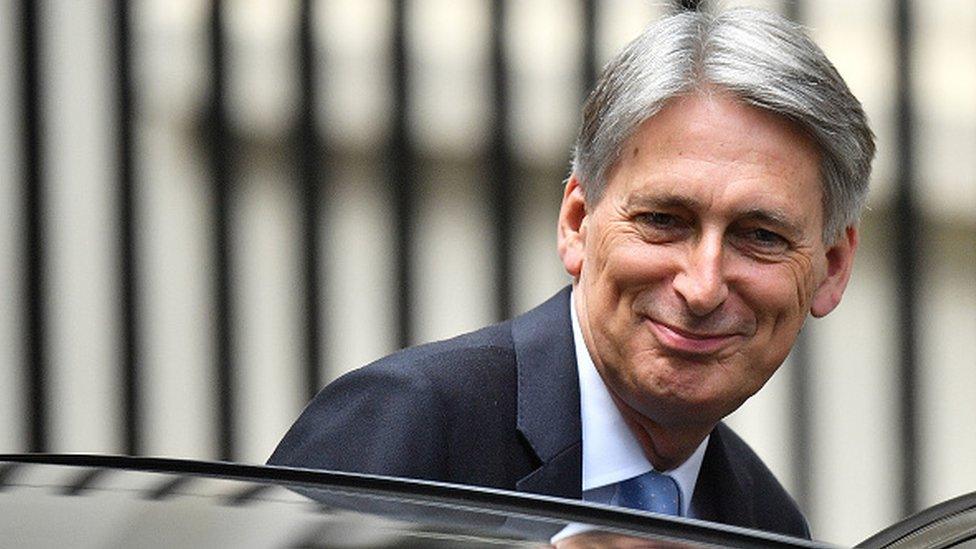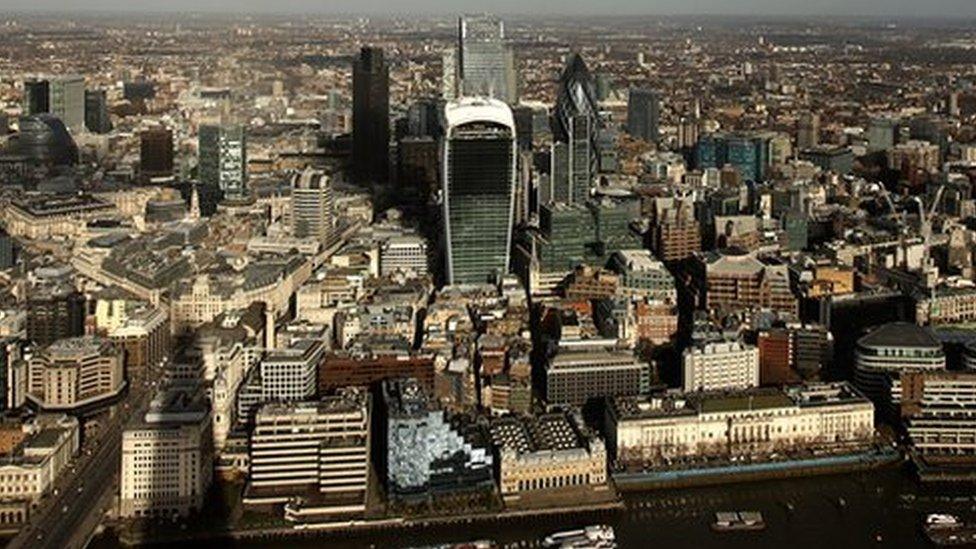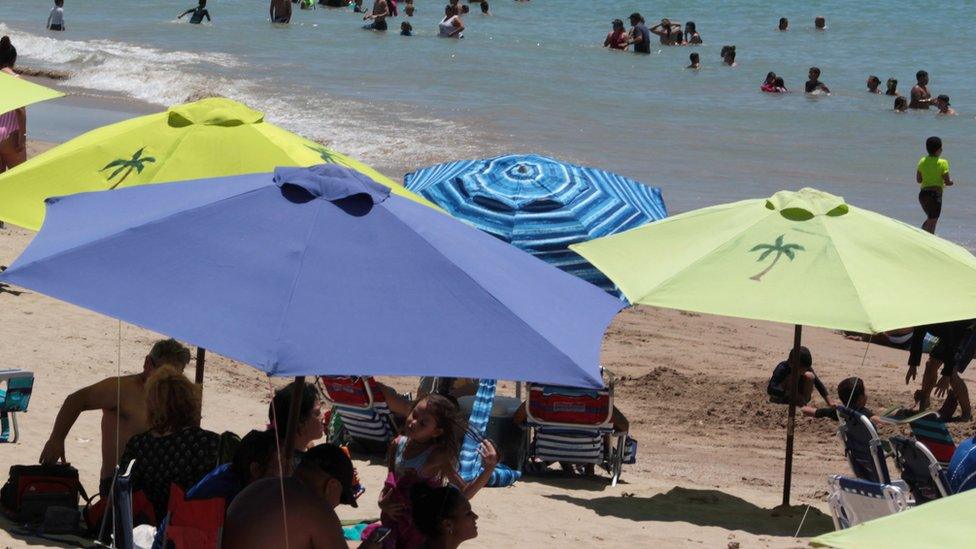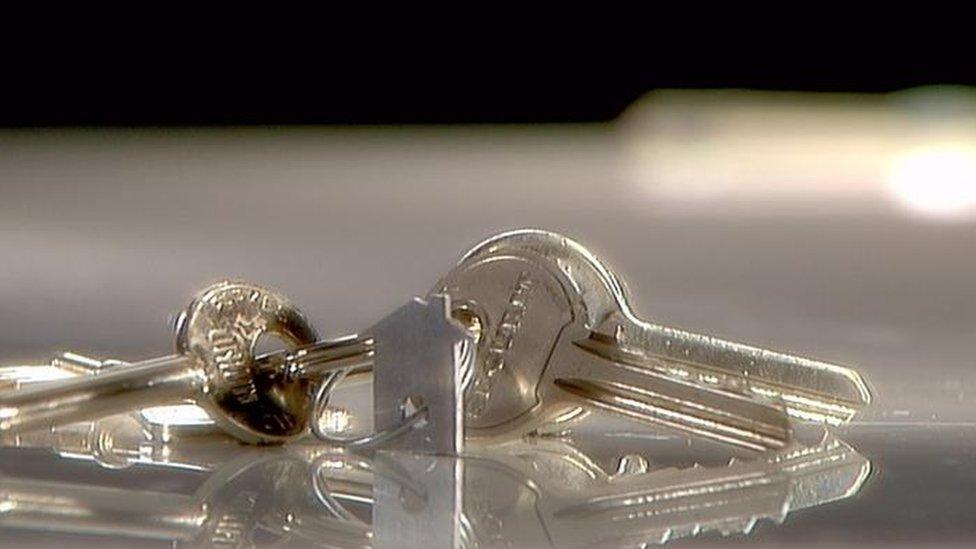Hammond flexes muscles over Brexit
- Published
- comments

It is the first significant reassurance to businesses that the government is ready to step in with extra financial support as the Brexit deal is negotiated.
The chancellor has made it clear to his allies he wants jobs and the economy to be the first consideration as Britain leaves the European Union.
His approach is described by some as a "soft" Brexit, meaning that the UK keeps closer ties to the single market and possibly stays within the customs union.
Even if that means making more financial contributions to the EU.
Softer approach
It is certainly different in tone from pre-election comments by the Prime Minister that "no deal is better than a bad deal".
At the Mansion House speech tonight, Philip Hammond will say that £48bn of funds from the European Union's investment bank will not be put at risk.
The European Investment Bank (EIB) provides funding for infrastructure projects across the EU, such as the building of the Crossrail train line in London, and tram networks in Nottingham and Manchester.
It lends at preferential rates to EU members and some thought the source of financing could be at risk as the UK approaches the departure date of March 2019.
But the government will now act as final guarantor for those funds if the EIB demands extra assurances on the financial viability of the projects.
The Treasury says it will use financing available from the British Business Bank to cover any shortfalls the UK faces.
Although the guarantee is likely to be welcomed by business - which has often felt locked out of the Brexit process - much more important is the tone Mr Hammond will strike in his speech tonight.
Deal or no deal?
It will be the first significant intervention in the Brexit debate by a member of the Cabinet since the election and Theresa May's loss of authority.
Mr Hammond backs a discussion around membership of the EU's customs union even if that curtails Britain's ability to sign free trade deals with other nations.
Such a position could put him at odds with the International Trade Secretary, Liam Fox, who wants Britain to be free to sign new trade deals with non-EU countries.
Yesterday Mr Hammond was discussing with aides how far he should travel down the "soft Brexit" route ahead of a meeting with Mrs May, which is planned for this morning, to finalise the speech, one of the most important in the economic calendar.
It is unlikely he will overtly distance himself from the government's pre-election position laid out by the Prime Minister in her Lancaster House speech last January, in which she said Britain would leave the single market and "full membership" of the customs union.
Tensions
What "no full membership" means is still unclear, and Britain could now look at a position where it is still bound by some of the customs union's rules in exchange for tariff free access to the rest of the single market.
Although there have been significant tensions between the Treasury and Number 10 over the approach not just to Brexit but to the UK economy, Mr Hammond is aware that Mrs May is in a fragile position politically.
Any push to change the government's position on the EU is likely to be coded.
But his desire for closer ties with Britain's largest trading partner is likely to be clear in the language, I have been told.
Mr Hammond is close to Wolfgang Schaeuble, the German finance minister, who wants strong economic ties with the UK post-Brexit.
The chancellor, who campaigned to remain in the EU ahead of the referendum, believes there will be a deal, but the tone has to change towards the rest of the EU if Britain is to achieve it.
- Published13 June 2017

- Published13 June 2017

- Published13 June 2017
